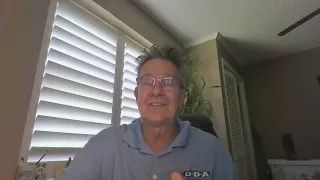Report suggests capital gains tax is discouraging older homeowners from downsizing
While recent housing market reports and trends have shown that older homeowners are unwilling to sell their homes for a variety of reasons, one of them may be the expected requirement to pay capital gains taxes stemming from the post-pandemic explosion of home-price appreciation, according to a report from Business Insider.
While some homeowners are looking to cash in on the equity they’ve built up since the pandemic, these same increases in property values are driving up the number of home sales that the capital gains tax would be applied to.
The capital gains tax is a federal tax that is applied when the sale of a particular asset — including a home, personal items, or stocks and bonds held as investments — is sold “for more than [a seller’s] adjusted basis,” referring to the initial cost of the item being sold, according to the IRS.
Capital gains have applied to home sales with profits of more than $250,000 since 1997, when the median price of a U.S. single-family home was $124,800, according to data from the U.S. Department of Housing and Urban Development (HUD). The initial idea was for the targeted capital gains tax to apply to the most affluent homeowners.
But according to data released by the U.S. Census Bureau late last month, that same median price now sits at $402,600. And considering the run-up in home prices in the early 2020s, these thresholds are likely to many home sellers, not just affluent ones, particularly since the tax is not indexed to inflation.
“The share of home sales subject to the tax has more than doubled in the past few years. In 2023, 8% of US sellers made more than $500,000 in profit on the sale of their homes, the property data
firm CoreLogic found,” Business Insider reported based on April 2024 data. “That’s up from 1.3% in 2003 and 3% in 2019. If the threshold had been adjusted for inflation, the $250,000 cutoff for individual home sellers in 1997 dollars would be about twice as high — $496,000 — in 2024 dollars.”
Considering that the home is a central pillar of wealth for many Americans, including older homeowners, the concept of the tax biting into their finances is actively warding off some people from selling, according to CoreLogic chief economist Selma Hepp.
“What we know, anecdotally, is that people are feeling locked in,” Hepp told Business Insider. “There are a good share of people for whom this is the only source of wealth savings.”
Some homeowners are also in a challenging position because of high home prices in general. One 71-year old homeowner described the challenges of entering the market now, since the capital gains tax would lower his sale proceeds enough that it would be a challenge to find a new home.
“If we sell our house, pay the capital gains tax, with what we’re left over with we can’t find anything to buy that’s anywhere as nice as the home we’re in,” said David Levin, a resident of Manhattan Beach, California.
But many older homeowners have also given other reasons they’ve elected not to sell.
September, Clever Real Estate released survey data showing that more than half (54%) of baby boomers have no intention of ever selling their homes. Having a home that fits their lifestyle needs, and a desire to age in place, led the reasons cited.
Have A Question?
Use the form below and we will give your our expert answers!
Reverse Mortgage Ask A Question
Start Your Loan
with DDA todayYour local Mortgage Broker
Mortgage Broker Largo See our Reviews
Looking for more details? Listen to our extended podcast!
Check out our other helpful videos to learn more about credit and residential mortgages.





